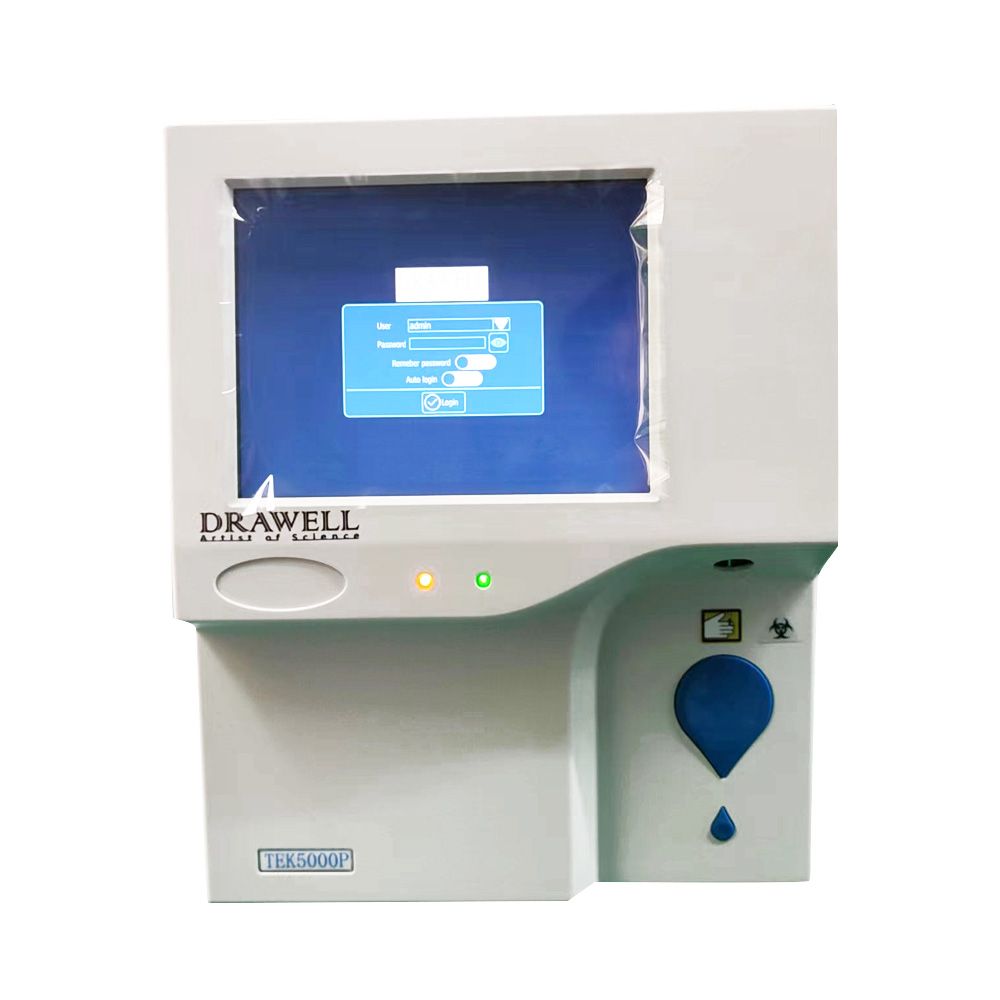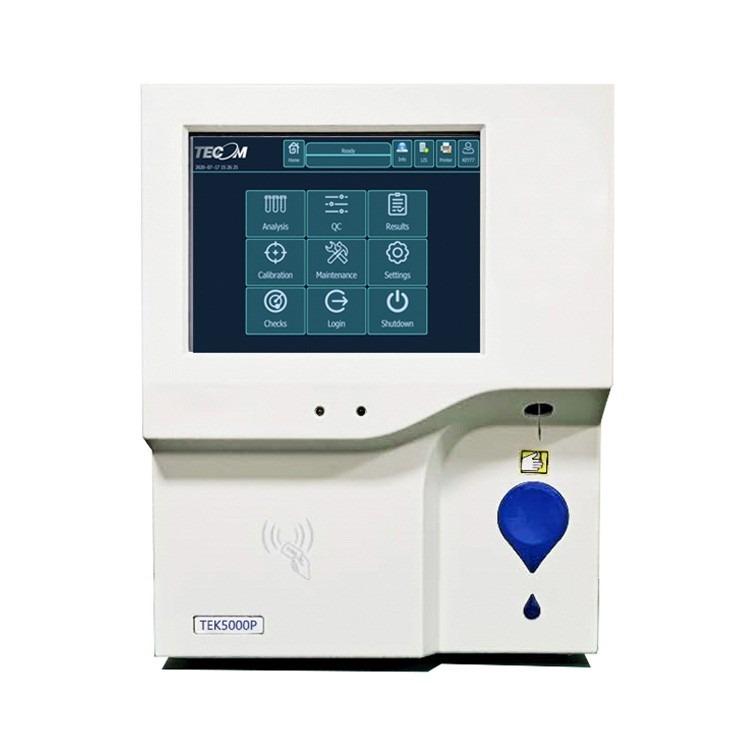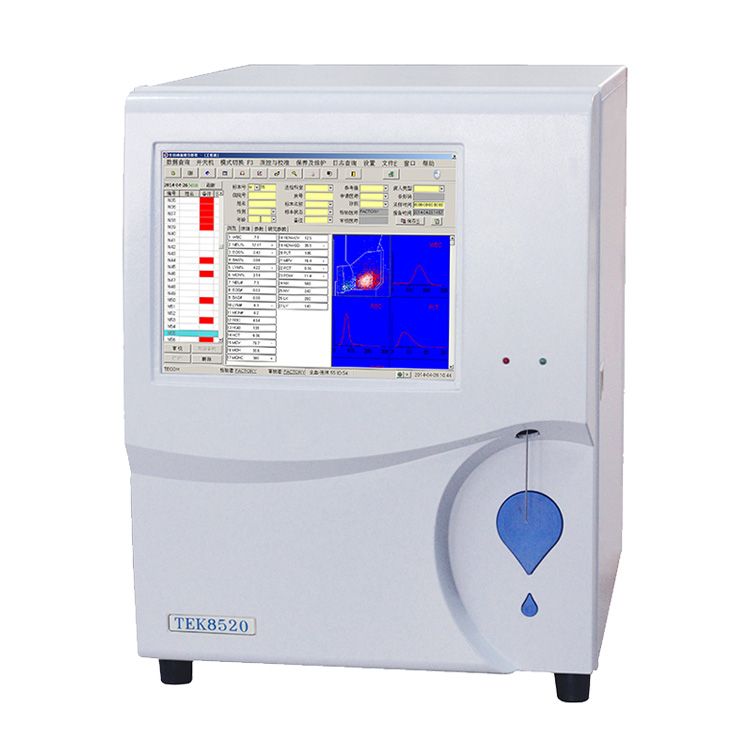Hematology analyzers are critical medical tools that aid in the diagnosis and monitoring of many blood-related illnesses. These sophisticated instruments have transformed the way healthcare practitioners study blood samples, delivering precise and comprehensive information about a patient’s blood composition. In this article, we will delve into the multifaceted uses of hematology analyzers and their significance in modern healthcare.

Understanding Hematology Analyzers
Automatic hematology analyzers are automated equipment used to swiftly and accurately test blood samples. They provide a wealth of information regarding blood’s cellular components, such as red blood cells (RBCs), white blood cells (WBCs), platelets, hemoglobin, hematocrit, and different blood indices. These analyzers count and measure the properties of blood cells using diverse methods such as impedance, flow cytometry, and light scattering.

Key Uses of Hematology Analyzers
Complete Blood Count (CBC)
The most common use of hematology analyzers is to perform a complete blood count (CBC), which offers vital information about the cellular components of blood. A complete blood count (CBC) assesses RBC count, hemoglobin concentration, hematocrit, WBC count, platelet count, and other blood parameters. It is a core test used for general health assessments, disease diagnosis, and treatment effectiveness monitoring.
Diagnosis of Anemia
Hematology analyzers are critical in the diagnosis of anemia, a disorder marked by a decrease in the number or quality of RBCs. These analyzers assist healthcare workers in determining the type and degree of anemia by analyzing hemoglobin levels and red cell indices.
Detection of Blood Disorders
Hematology analyzers are extremely useful in detecting a wide variety of blood illnesses, including leukemia, lymphoma, and myeloproliferative disorders. Abnormalities in WBC counts, differential leukocyte counts, and platelet counts can indicate the presence of such disorders.
Monitoring Chronic Conditions
Patients suffering from chronic conditions such as diabetes, hypertension, and renal disease frequently require regular blood testing. Hematology analyzers helps in disease monitoring and medication adjustments by tracking changes in blood cell counts and hemoglobin levels.
Infection Detection
Elevated WBC counts, particularly the neutrophil count, can suggest bacterial infection. Hematology analyzers aid in the diagnosis and monitoring of infections, as well as guiding healthcare providers in the selection of appropriate treatments.
Evaluation of Platelet Function
Platelet counts and indices are critical for determining a patient’s risk of bleeding disorders and thrombocytopenia. Hematology analyzers are essential for determining the danger of excessive bleeding and monitoring platelet function prior to surgery.
Research and Clinical Studies
In clinical research and investigations, hematology analyzers are commonly utilized to explore blood-related disorders and conduct large-scale health assessments. They provide consistent and accurate data, allowing researchers to draw meaningful conclusions.
Quality Control in Blood Banks
Blood banks rely on hematology analyzers to perform quality control on donated blood products. These analyzers ensure that the blood is safe and compatible with the intended recipient, preventing adverse transfusion reactions.
Pediatric and Neonatal Care
Hematology analyzers are adapted for use in pediatric and neonatal care to provide accurate blood profiles for young patients. These analyzers are essential for diagnosing conditions like neonatal jaundice.

The Significance of Hematology Analyzers in Modern Healthcare
Accurate and Comprehensive Diagnoses
Complete blood counts (CBCs), which provide detailed information about the cellular components of blood, are performed using hematology analyzers. Red blood cells (RBCs), white blood cells (WBCs), platelets, hemoglobin levels, hematocrit, and other blood indicators are all quantified.
Quick and Efficient Patient Care
Hematology analyzers provide quick and efficient testing, saving diagnostic time significantly. This is especially important in emergency and critical care situations, where early actions can save lives.
Enhanced Research and Clinical Studies
Hematology analyzers are extremely useful in clinical research and investigations because they provide a lot of standardized data. With confidence, researchers can make meaningful conclusions about blood-related illnesses, study new treatments, and conduct large-scale health assessments.
Quality Control in Blood Banks
Blood banks and transfusion services rely on hematology analyzers to ensure the safety and compatibility of donated blood products. These analyzers play a critical role in verifying that blood is free from infections, antibodies, and other factors that could lead to adverse transfusion reactions.
Pediatric and Neonatal Care
Hematology analyzers have been modified for use in pediatric and neonatal care, resulting in precise blood profiles for young patients. They are very useful in identifying diseases such as newborn jaundice.
Conclusion
Hematology analyzers have revolutionized the way doctors diagnose, monitor, and treat blood-related illnesses. These adaptable equipment give precise and timely findings, allowing healthcare providers to make informed decisions and provide high-quality patient care. Auto hematology analyzers are vital tools in modern healthcare, contributing significantly to patient well-being and improved outcomes, from basic CBCs to the detection of complex blood disorders. Their continuing development and implementation promise to increase our understanding of blood-related disorders and patient care worldwide.
